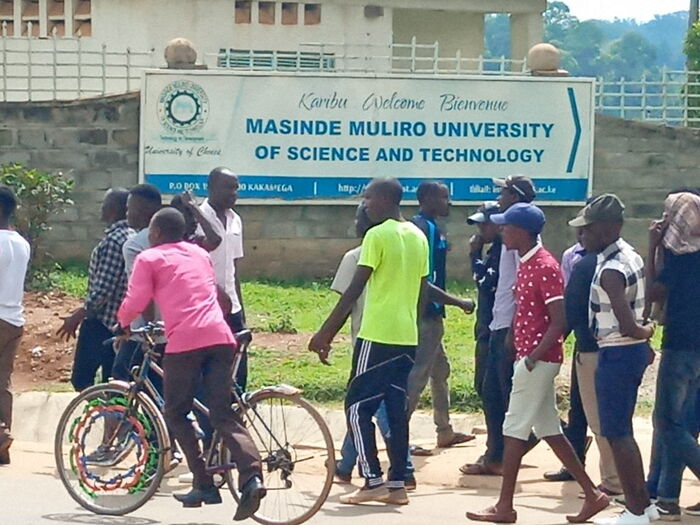Masinde Muliro University of Science and Technology (MMUST) has come under sharp scrutiny from Members of Parliament over a stalled swimming pool project initially valued at Ksh78.2 million.
The revelations emerged on Monday, September 1, during a tour by the Public Investments Committee on Governance and Education, led by Bumula MP Wanami Wamboka. Lawmakers disclosed that management at MMUST had altered the original Bill of Quantities (BQ), downgrading the project from an “Olympic size” pool to an “Olympic standard” one.
According to the contractor, the changes made delivery impossible within the allocated budget. At the time of termination, construction had reached about 65 percent completion. Both the contractor and the university agreed to end the contract, which was initially scheduled to run from July 29, 2021, to June 30, 2022.
The MPs questioned why the university altered the project without student consultation and why the contract was illegally renewed after lapsing. “Public funds were used in a project without a legal contract. We would like to review the documents and determine who made the erratic decision,” said Wamboka.
Technical experts clarified that while an “Olympic size” pool refers to dimensions of 50 meters by 25 meters, an “Olympic standard” pool requires additional specifications such as depth, lane numbers, and advanced technology to meet World Aquatics competition criteria.
The scrutiny extended beyond MMUST. At the University of Kabianga, MPs raised concerns over a stalled library project worth Ksh834.5 million. Construction began in June 2017 and was set for completion in 2020, but only 72 percent of the work has been completed after three deadline extensions. Management blamed minimal and delayed government funding, but legislators urged Vice Chancellor Prof. Erick Koech to explore internal revenue generation.
Lawmakers also flagged misuse of imprest funds worth Ksh3 million at Kabianga, which were spent on fueling vehicles despite an existing fuel supplier contract.
Committee members emphasized the need for accountability and independence in university management, noting that leadership interference has compromised critical departments like HR and procurement.

